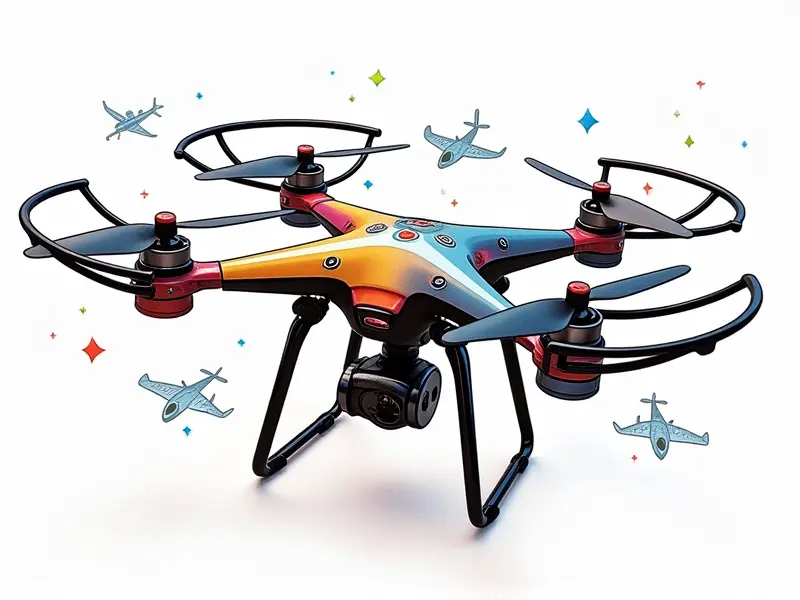Do drones need GPS?

Do RC Drones Really Need GPS?
Drones, particularly those used in remote control (RC) and recreational settings, often rely on GPS for various functionalities. However, the necessity of GPS varies based on the intended use and capabilities of the drone itself. For instance, drones designed for FPV racing or indoor flying may not require GPS at all.
Benefits of GPS for Drone Pilots
The integration of GPS technology offers numerous advantages to drone pilots:
- Position Awareness: Knowing the exact location and altitude helps in navigation, especially over large areas or unfamiliar terrain.
- Return-to-Home (RTH) Functionality: This feature ensures that a lost or low-battery drone can automatically return to its starting point.
- Precision Flight: GPS enables drones to maintain steady flight paths and execute precise maneuvers with minimal pilot intervention.
Can Drones Operate Without GPS?
Absolutely, many drones are designed to operate without GPS. This is particularly true for indoor flying or scenarios where GPS signals may be weak or unavailable. However, the absence of GPS can limit certain features and functionalities that rely on accurate positioning.
Flying Drones Indoors: No GPS Needed
Indoor environments present unique challenges for drones, such as limited space and potential obstacles. In these settings, drones often operate without GPS:
- Manual Control: Pilots rely on visual cues to navigate the drone.
- Sensor-Based Navigation: Advanced sensors like ultrasonic or infrared can help in maintaining stability and avoiding collisions.
How Important is GPS for FPV Racing?
While GPS provides valuable positioning data, its importance diminishes in the context of FPV racing. The fast-paced nature of this activity demands quick reflexes and real-time decision-making:
- Speed and Agility: Racers prioritize speed and maneuverability over precise navigation.
- Visual Guidance: Pilots rely on live video feeds to navigate through courses.
The Role of GPS in Drone Flight
GPS plays a crucial role in ensuring stable flight, providing real-time location updates, and enabling advanced features like waypoint navigation. For commercial or professional use cases, GPS is often indispensable:
- Precision Mapping: Accurate positioning data ensures high-resolution maps.
- Agricultural Monitoring: Farmers can track crop health and soil conditions with precision.
Navigating Without GPS on RC Drones
For drones that do not have GPS, alternative navigation methods are employed to ensure safe and effective operation:
- Magnetometer: Provides heading information based on Earth's magnetic field.
- Inertial Measurement Units (IMU): Tracks the drone’s orientation and movement.
- Visual Odometry: Uses onboard cameras to estimate motion relative to the environment.
Drone Autonomy: Relying on GPS?
The level of autonomy in drones often correlates with their reliance on GPS. Highly autonomous drones, such as those used for surveying or inspection tasks, typically depend heavily on GPS:
- Waypoint Navigation: Drones follow predefined routes to cover large areas systematically.
- Safety Features: Automated features like RTH and obstacle avoidance are enabled by GPS data.
Alternatives to GPS for Drone Navigation
In scenarios where GPS is unavailable or unreliable, drones can leverage other technologies:
- LIDAR: Provides detailed 3D mapping of the environment.
- Satellite-Based Systems: Such as GLONASS and Galileo offer redundancy to GPS.
Enhancing Drone Performance with GPS
The integration of GPS can significantly enhance a drone's performance in various ways:
- Battery Efficiency: Precise navigation minimizes unnecessary movements, conserving battery life.
- Data Collection: Accurate positioning data improves the quality and reliability of collected information.
GPS vs No-GPS Drone Flying
The choice between GPS-enabled and no-GPS drones depends on the specific use case:
- Outdoor Applications: GPS is essential for accurate positioning, safety features, and precision tasks.
- Indoor Environments: Sensor-based navigation or manual control may be more effective due to limited space and potential obstacles.
Conclusion
The necessity of GPS in drones is context-dependent. While it offers significant advantages for outdoor use, especially in professional applications like surveying and agriculture, indoor flying scenarios often do not require GPS. Understanding the role and limitations of GPS can help drone enthusiasts choose the right technology for their specific needs.

